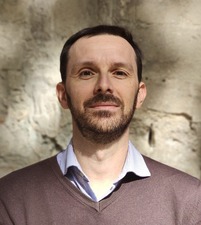Studying at the University of Verona
Here you can find information on the organisational aspects of the Programme, lecture timetables, learning activities and useful contact details for your time at the University, from enrolment to graduation.
Academic calendar
The academic calendar shows the deadlines and scheduled events that are relevant to students, teaching and technical-administrative staff of the University. Public holidays and University closures are also indicated. The academic year normally begins on 1 October each year and ends on 30 September of the following year.
Course calendar
The Academic Calendar sets out the degree programme lecture and exam timetables, as well as the relevant university closure dates..
| Period | From | To |
|---|---|---|
| 1 A | Sep 26, 2022 | Nov 5, 2022 |
| 1 B | Nov 14, 2022 | Dec 22, 2022 |
| 2 A | Feb 13, 2023 | Apr 6, 2023 |
| 2 B | Apr 12, 2023 | May 27, 2023 |
| Session | From | To |
|---|---|---|
| Sessione invernale | Jan 9, 2023 | Feb 11, 2023 |
| Sessione estiva | Jun 5, 2023 | Jul 29, 2023 |
| Sessione autunnale | Aug 28, 2023 | Sep 23, 2023 |
| Session | From | To |
|---|---|---|
| Sessione straordinaria (a.a. 2021/22) | Mar 31, 2023 | Apr 6, 2023 |
| Sessione estiva | Jul 10, 2023 | Jul 15, 2023 |
| Sessione autunnale | Nov 6, 2023 | Nov 11, 2023 |
| Sessione straordinaria | Apr 2, 2024 | Apr 8, 2024 |
| Period | From | To |
|---|---|---|
| Chiusura edifici | Oct 31, 2022 | Oct 31, 2022 |
| Festa di Ognissanti | Nov 1, 2022 | Nov 1, 2022 |
| Festa dell'Immacolata | Dec 8, 2022 | Dec 8, 2022 |
| Chiusura edifici | Dec 9, 2022 | Dec 10, 2022 |
| Vacanze di Natale | Dec 23, 2022 | Jan 7, 2023 |
| Vacanze di Pasqua | Apr 7, 2023 | Apr 10, 2023 |
| Festa della Liberazione | Apr 25, 2023 | Apr 25, 2023 |
| Festa del lavoro | May 1, 2023 | May 1, 2023 |
| Festa del Santo Patrono | May 21, 2023 | May 21, 2023 |
| Festa della Repubblica | Jun 2, 2023 | Jun 2, 2023 |
| Chiusura estiva | Aug 13, 2023 | Aug 19, 2023 |
Exam calendar
Exam dates and rounds are managed by the relevant Culture and Civilisation Teaching and Student Services Unit.
To view all the exam sessions available, please use the Exam dashboard on ESSE3.
If you forgot your login details or have problems logging in, please contact the relevant IT HelpDesk, or check the login details recovery web page.
Should you have any doubts or questions, please check the Enrollment FAQs
Academic staff
 riccardo.bertolazzi@univr.it
riccardo.bertolazzi@univr.it
 luca.bochicchio@univr.it
luca.bochicchio@univr.it
 evita.calabrese@univr.it
evita.calabrese@univr.it
 alberto.scandola@univr.it
alberto.scandola@univr.it
Study Plan
The Study Plan includes all modules, teaching and learning activities that each student will need to undertake during their time at the University.
Please select your Study Plan based on your enrollment year.
1° Year
| Modules | Credits | TAF | SSD |
|---|
1 module among the following2 modules among the following1 module between the following2° Year activated in the A.Y. 2023/2024
| Modules | Credits | TAF | SSD |
|---|
1 module among the following2 modules among the following1 module among the following| Modules | Credits | TAF | SSD |
|---|
1 module among the following2 modules among the following1 module between the following| Modules | Credits | TAF | SSD |
|---|
1 module among the following2 modules among the following1 module among the following| Modules | Credits | TAF | SSD |
|---|
Legend | Type of training activity (TTA)
TAF (Type of Educational Activity) All courses and activities are classified into different types of educational activities, indicated by a letter.
Latin literature (m) (2022/2023)
Teaching code
4S02268
Teacher
Coordinator
Credits
6
Also offered in courses:
- Latin literature I - LM [Sede VR] of the course Master's degree in Arts (interuniversity)
Language
Italian
Scientific Disciplinary Sector (SSD)
L-FIL-LET/04 - LATIN LANGUAGE AND LITERATURE
Period
1 A, 1 B
Learning objectives
The course aims to provide an advanced approach to Latin literature, related to a sample of chosen texts. Lessons will focus on the main critical approaches to the study of Latin literature, with theoretical analyses, as well on readings of the chosen texts, with reference to their textual, linguistic, stylistic, dramaturgical and thematic features. Prerequisites Knowledge of the historical development of Latin literature and of literary genres. Advanced phonetical, morphological, syntactical and lexical knowledge of Latin language. Expected learning outcomes At the end of the course the student - knows the essential characteristics of the texts in question; - is able to provide a close translation and a linguistic analysis of the texts; - develops autonomous ability to understand and interpret the texts and their formal features; - improves communication skills, reflecting on the linguistic, dramaturgical and cultural codes of communication, through the translation of the text; - is stimulated to develop autonomous ability to reflect on the features of the different Latin literary genres.
Prerequisites and basic notions
Knowledge of the historical development of Latin literature and of the main characteristics of literary genres. Good phonetic, morphological, syntactic and lexical knowledge of the Latin language.
Program
The course is dedicated to the study of Ciceronian oratory through the reading and commentary of one of the most famous orations, De praetura urbano (Verrine 2,1). The oration, never pronounced like all the others in the second section of the Verrines for the flight of Verre, but then published by Cicero, remains one of the best examples of the oratory skills of Arpinate, so much so that it has become one of the most used texts in school practice. Roman. The course aims to frame the prayer in the first phase of Cicero's career and in the political, social and cultural context of Rima in the first decades of the first century. BC, with reference to the more general characteristics of the Roman oratory.
The course also includes a general part dedicated to the study of the various genres of Latin prose, which will be studied on the collection of essays edited by F. Montanari, la prosa latina.
The study of chaps III-VIII of the handbook by A. Traina - G. Bernardi Perini, Propedeutica al latino universitario is also required.
The lessons will be accompanied, where possible, by seminar-type activities, functional to the active involvement and development of the students' critical autonomy, aimed at opening spaces for discussion, comparison and ongoing experimentation of the methodologies acquired.
Bibliography
Didactic methods
The lessons will be accompanied, where possible, by seminar-type activities, functional to the active involvement and development of the students' critical autonomy, aimed at opening spaces for discussion, comparison and ongoing experimentation of the methodologies acquired.
Students in isolation for Covid-19 are invited to agree with the teacher how to recover the lessons in which they were temporarily unable to attend.
Learning assessment procedures
The exam consists of an interview aimed at verifying the degree of - ability to frame Ciceronian prose in the broader context of Roman prose, through the study of essays in the bibliography - autonomous ability to understand, translate and interpret the text of the Cicero's oration planned from a literary, rhetorical and philological point of view; - ability to exhibit language properties and discuss the contents of the essays in the program with independent judgment NB It is compulsory to pass the written translation test from Latin before registering any exam in the sector L-FIL-LET / 04 (Latin literature, Latin Philology, Latin Grammar, History of the Latin Language) which allows to reach the total of 24 credits in the sector necessary for access to teaching in the current ministerial classes A-11 (formerly A / 51) and A-13 (formerly A / 52). This written test is preparatory to the aforementioned exam and therefore does not give rise to credits. Starting from the academic year 2019/20 for students of the LM39-Linguistics it is mandatory to pass the above test before registering any exam of L-FIL-LET / 04 that allows to reach the total of 18 credits in the sector necessary for access to teaching in the current ministerial class A-11 (formerly A / 51).
Evaluation criteria
The evaluation of the exam will be conducted according to the following criteria: 1) in-depth knowledge of the scheduled bibliography 2) clarity and completeness of the presentation 3) correctness of pronunciation of the Latin texts 4) correct in the Italian translation of the scheduled texts 5) ability to analyze and comment on the texts in the program.
Criteria for the composition of the final grade
The final grade is expressed out of thirty (min.18 to pass the exam) and is composed as follows: 60% ability to translate and comment on the Latin texts in the program 40% knowledge of secondary bibliography
Exam language
italiano
Type D and Type F activities
COMPETENZE TRASVERSALI
| years | Modules | TAF | Teacher |
|---|---|---|---|
| 1° 2° | FAI Activities | F |
Edoardo Bianchi
(Coordinator)
|
| 1° 2° | Series of conferences Don Nicola Mazza University College | F |
Alessandra Zangrandi
(Coordinator)
|
| 1° 2° | Business English for everybody | F |
Serena Dal Maso
(Coordinator)
|
| 1° 2° | Russian for everybody | F |
Serena Dal Maso
(Coordinator)
|
| 1° 2° | Books and writings of the Greek world | F |
Paolo Scattolin
(Coordinator)
|
| 1° 2° | Music in History | F |
Vincenzo Borghetti
(Coordinator)
|
| years | Modules | TAF | Teacher |
|---|---|---|---|
| 1° 2° | FAI Activities | F |
Edoardo Bianchi
(Coordinator)
|
| 1° 2° | Series of conferences Don Nicola Mazza University College | F |
Alessandra Zangrandi
(Coordinator)
|
| 1° 2° | Conference PRIN "Ippolito Nievo tra i Mille" | F |
Alessandra Zangrandi
(Coordinator)
|
| 1° 2° | Business English for everybody | F |
Serena Dal Maso
(Coordinator)
|
| 1° 2° | Russian for everybody | F |
Serena Dal Maso
(Coordinator)
|
| 1° 2° | Books and writings of the Greek world | F |
Paolo Scattolin
(Coordinator)
|
| 1° 2° | Music in History | F |
Vincenzo Borghetti
(Coordinator)
|
| 1° 2° | Contemporary history seminars | F |
Renato Camurri
(Coordinator)
|
| 1° 2° | Text, author, audience. The forms of reception from antiquity to modernity | F |
Massimo Natale
(Coordinator)
|
| years | Modules | TAF | Teacher |
|---|---|---|---|
| 1° 2° | FAI Activities | F |
Edoardo Bianchi
(Coordinator)
|
| 1° 2° | Seminar Day “I would annex the planets if I could”. Representations of exploration and conquest between 19th and 20th century | F |
Luca Ciancio
(Coordinator)
|
| 1° 2° | Introduction to robotics for humanities students | F |
Paolo Fiorini
(Coordinator)
|
| 1° 2° | Opera Workshop | F |
Nicola Pasqualicchio
(Coordinator)
|
| 1° 2° | Reading the Middle Ages. Authors, Meetings, Debates | F |
Marco Stoffella
(Coordinator)
|
| years | Modules | TAF | Teacher | |
|---|---|---|---|---|
| 1° 2° | FAI Activities | F |
Edoardo Bianchi
(Coordinator)
|
|
| 1° 2° | Meeting cycle «Anniversari» | F |
Fabio Danelon
(Coordinator)
|
|
| 1° 2° | Conference "Franca Rame, not only an actress" | F |
Nicola Pasqualicchio
(Coordinator)
|
|
| 1° 2° | Ferments, experiments and meetings on the Italian dance and theatre scene between the eighteenth and nineteenth centuries | F |
Simona Brunetti
(Coordinator)
|
|
| 1° 2° | Festival of journalism | F |
Simona Brunetti
(Coordinator)
|
|
| 1° 2° | Introduction to robotics for humanities students | F |
Paolo Fiorini
(Coordinator)
|
|
| 1° 2° | Opera Workshop | F |
Nicola Pasqualicchio
(Coordinator)
|
|
| 1° 2° | Reading the Middle Ages. Authors, Meetings, Debates | F |
Marco Stoffella
(Coordinator)
|
|
| 1° 2° 3° | Conversations | F |
Nicola Pasqualicchio
(Coordinator)
|
|
| years | Modules | TAF | Teacher | |
|---|---|---|---|---|
| 1° | Laboratory of photo | F |
Carlo Vannini
(Coordinator)
|
|
| 1° 2° | Conference Civici Museum Verona | F |
Tiziana Franco
(Coordinator)
|
|
| 1° 2° | Know to respect and respect each other | F |
Nicoletta Zerman
(Coordinator)
|
|
| 1° 2° | International Congress CRIER “Verona at the Centre of Europe: Diplomacy, Literature and the Arts at the Congress of 1822” | F |
Paolo Pellegrini
(Coordinator)
|
|
| 1° 2° | Dialogoi. Inter-university reading seminar on classical texts | F |
Gherardo Ugolini
(Coordinator)
|
|
| 1° 2° | Future's Festival | F |
Alessandra Zangrandi
(Coordinator)
|
|
| 1° 2° | For the centenary of the death of Giovanni Verga. Study meeting | F |
Fabio Danelon
(Coordinator)
|
|
| 1° 2° | Literature and dance project: Pier Paolo Pasolini (Life, death and miracles) | F |
Nicola Pasqualicchio
(Coordinator)
|
|
| 1° 2° | You aint't heard nothing yet. The transition from the silents to the talkies (Bridge Film Festival) | F |
Alberto Scandola
(Coordinator)
|
|
Career prospects
Module/Programme news
News for students
There you will find information, resources and services useful during your time at the University (Student’s exam record, your study plan on ESSE3, Distance Learning courses, university email account, office forms, administrative procedures, etc.). You can log into MyUnivr with your GIA login details: only in this way will you be able to receive notification of all the notices from your teachers and your secretariat via email and soon also via the Univr app.
Graduation
List of theses and work experience proposals
| theses proposals | Research area |
|---|---|
| tesi di Glottologia, Storia comparata, Linguistica storica | ENGLISH LANGUAGE - Grammar and Syntax – Grammatik und Syntax |
| tesi di Glottologia, Storia comparata, Linguistica storica | GERMANIC LANGUAGE - Dialectology - Dialektologie |
| tesi di Glottologia, Storia comparata, Linguistica storica | HUMANITIES & SOCIAL STUDIES - HUMANITIES & SOCIAL STUDIES |
| tesi di Glottologia, Storia comparata, Linguistica storica | Indo-European languages & literatures - Indo-European languages & literatures |
| tesi di Glottologia, Storia comparata, Linguistica storica | LINGUISTICS - LINGUISTICS |
Gestione carriere
Linguistic training CLA
Double Degree
The University of Verona, through a network of agreements with foreign universities, offers international courses that enable students to gain a Double/Joint degree at the time of graduation. Indeed, students enrolled in a Double/Joint degree programme will be able to obtain both the degree of the University of Verona and the degree issued by the Partner University abroad - where they are expected to attend part of the programme -, in the time it normally takes to gain a common Master’s degree. The institutions concerned shall ensure that both degrees are recognised in the two countries.
Places on these programmes are limited, and admissions and any applicable grants are subject to applicants being selected in a specific Call for applications.
The latest Call for applications for Double/Joint Degrees at the University of Verona is available now!
Student mentoring
Requisiti classi di abilitazione insegnamento
Requisiti necessari per accedere alle classi di abilitazione per l'insegnamento.
vedi allegato pdf
Inoltre, per informazioni sui 24 CFU nelle discipline antropo-psico-pedagogiche e nelle metodologie e tecnologie didattiche, si veda -> LINK
Documents
| Title | Info File |
|---|---|
|
|
pdf, it, 307 KB, 30/11/21 |

 0458028376
0458028376



































